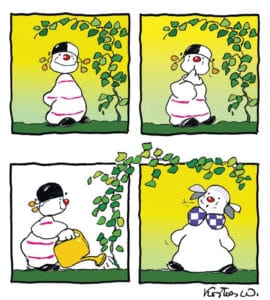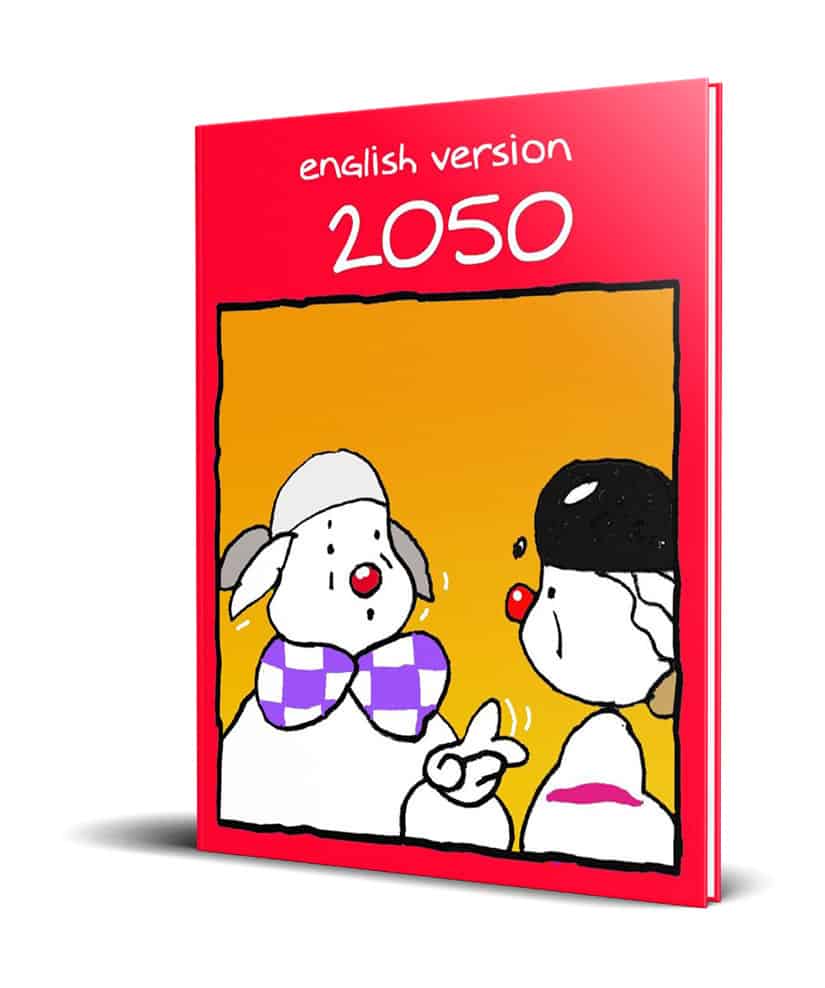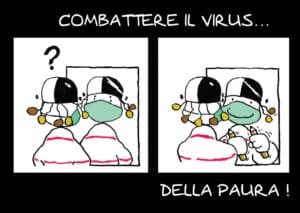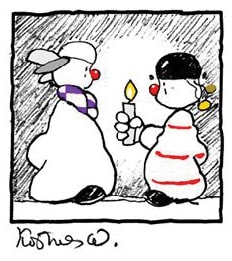It is April 2050. On a bench in the backyard, a grandfather is telling a story to his seven-year-old grandson.
Grandfather: “Julian, do you know that many years ago, in 2020, there was a great pandemic?”
Julian: “Grandfather, what is a pandemic?”
Grandfather: “It’s a disease that spreads quickly throughout the world. Many people died. People were afraid. Everyone had to stay home for fear of catching the virus, or coronavirus, as they called it. In those years, the world was in bad shape – almost everything was ruled by money. We raced like mad to compete, some people accumulated crazy sums. The poor were getting poorer and the rich getting richer.

The planet suffered from this and the earth’s climate became extreme. Few people cared, exploiting its resources without thinking about what would be left for future generations. They thought: “We want everything now!”
There were very poor countries and others very rich, even if the rich and poor were spread throughout the world. But the worst thing was that many people had lost the ability to share the pain of others, they had become selfish, they thought only of themselves and perhaps, their own families, or friends.
Then they bought and bought many useless things and, just think how we were then – we still used plastic and threw it in with the rubbish. The seas were covered with plastic islands, fish and animals became extinct.
I’m not going to tell you about nuclear weapons, but they were still there. Think that only with a few of those bombs, you could have destroyed the planet, but there were more than 15,000 of them! Utter madness!”

Julian: “They were all a bit strange! Grandfather, were you also like that?”
Grandfather: “You know, Julian, I saw that things were not going well but it seemed that nothing could be done!
Most people thought the same. Some tried to do something but it always seemed to be just a drop in the ocean. I also tried to do something but it seemed impossible to change anything in that world.
Until the coronavirus pandemic arrived.
You had to stay indoors for weeks, months – you could only go out briefly to buy things to eat. Everything else was closed. News about the virus was broadcast all day long which just made people panic more.
There were some very sad situations: we could not accompany loved ones to the hospital. You had to let them die alone, and you couldn’t even attend their funerals.

To support one another, people called their relatives who might be far away because one could not travel. They called friends, even friends whom they hadn’t talked to for years. Everyone was in the same boat and so, little by little, a current of empathy began to circulate.”
Julian: “What is empathy?”
Grandfather: “It means to feel, to understand what others are feeling. A nicer and easier word would be ‘love.’ However, to love – it’s not enough just to feel how others feel. This might be the first step, but something more is needed: you have to do something practical for them.
In fact, this happened later. Neighbors living in the same block of apartments began to greet each other at a distance from their balconies. Some prayed together on the stairs in the apartments.

We all felt drawn together by this situation. Many began to pray more, especially together, perhaps connected by TV or other media of those times. Then they started to help each other by shopping, going to the pharmacist, especially for the elderly and those with disabilities, always maintaining a safe distance so as not to spread the virus. And then a chain of love was put in place, people found a thousand ways to help and support each other. This love grew day by day. Someone even played the saxophone from their balcony to cheer up the whole street. Some risked their lives for others: doctors, nurses, police, supermarket workers and so many others…
All this made us reflect: but why had we been so selfish, so greedy about possessions and money? We did everything wrong. We thought that money would make us happy and we forgot that what makes us happy is love. Since that time, the world has changed. The pandemic lasted a few months, then people were able to go out again and everyone was happy to meet one another, to hug, to walk together on the grass in the park… “
Julian: “Seems like a fairy tale!”




